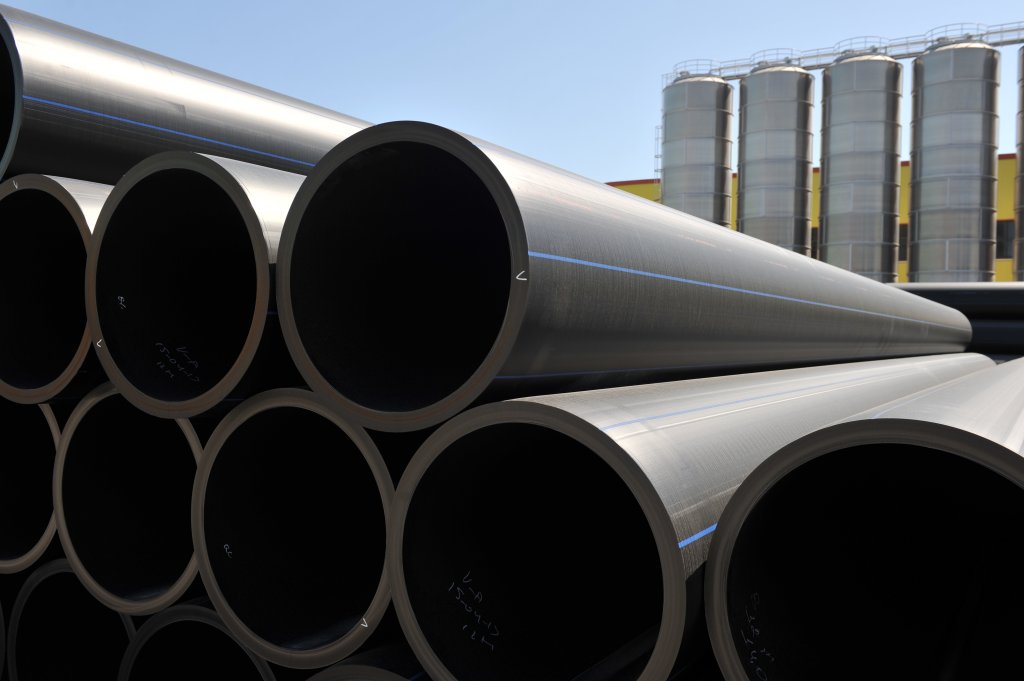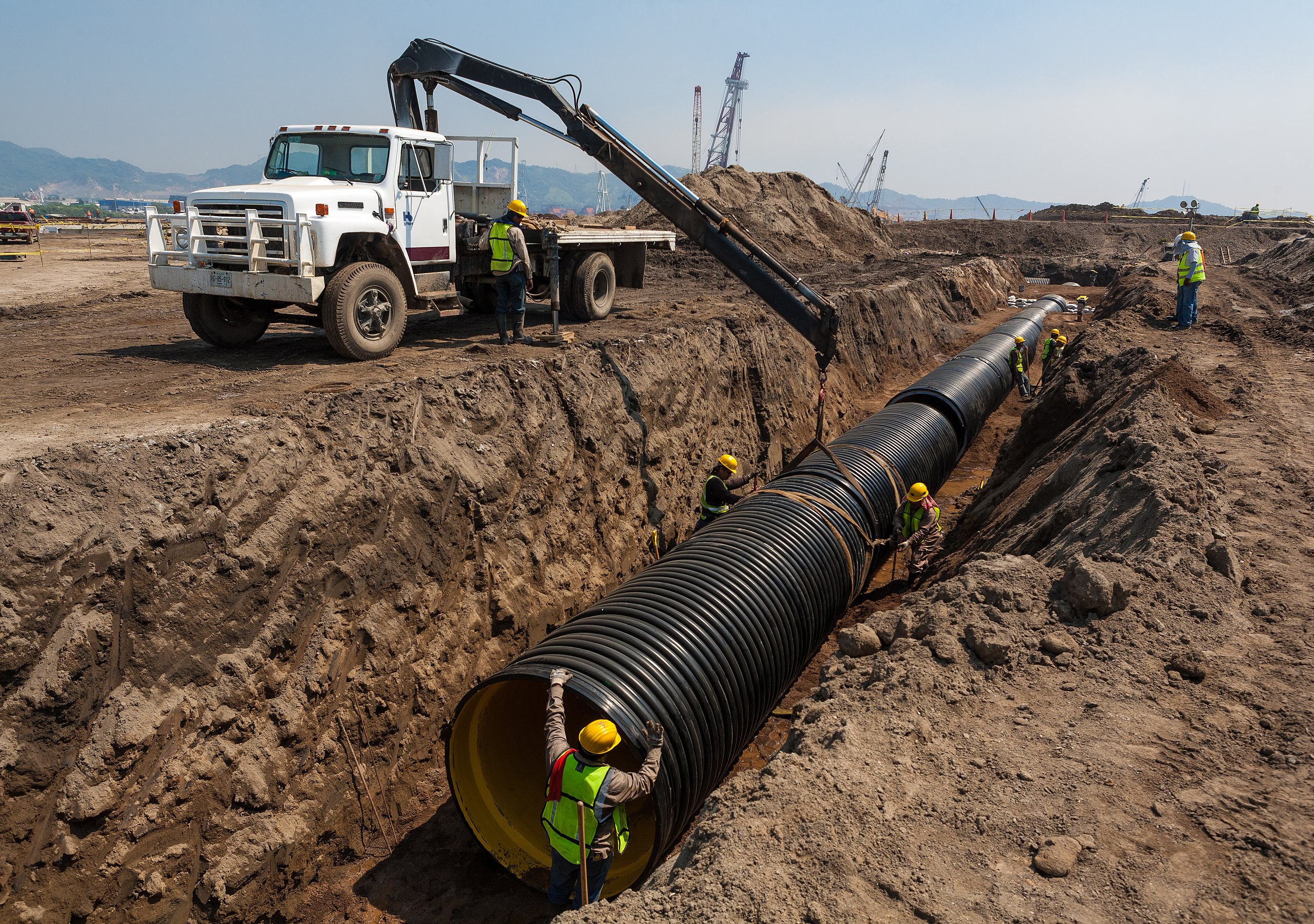Exploring American Plastics HDPE Pipe Manufacturing and Its Importance in Modern Infrastructure
Recognizing the Secret Benefits of HDPE Pipe for Water and Wastewater Administration
Making use of HDPE pipe in water and wastewater administration provides countless benefits that merit factor to consider. Its remarkable longevity and long lifespan make it a favored option for lots of tasks. Furthermore, the material's resistance to rust and chemical damages boosts its integrity in various settings. However, the advantages extend beyond simply long life and resistance. Exploring its cost-effectiveness and environmental impact exposes even a lot more engaging reasons for its widespread adoption in contemporary framework
Exceptional Toughness and Durability

HDPE pipeline sticks out for its phenomenal longevity and long life, making it a favored option in water monitoring systems. Constructed from high-density polyethylene, these pipes can withstand substantial pressure and anxiety, guaranteeing trusted performance over time. Their robust nature allows them to withstand extreme ecological conditions, including temperature level variations and soil activities, which can create various other materials to fail.
The life expectancy of HDPE pipes usually exceeds 50 years, supplying a cost-efficient service for towns and industries alike. In addition, the material's lightweight buildings streamline installment, lowering labor prices and durations. This longevity lessens the need for regular repairs or substitutes, even more boosting its financial appeal.
In water administration applications, the reliability of HDPE pipes implies less interruptions and enhanced service continuity, making them essential to lasting infrastructure growth. The combination of sturdiness and durability strengthens HDPE's function as a cornerstone in reliable water administration services.

Resistance to Deterioration and Chemical Damages
While several materials catch corrosion and chemical damage over time, HDPE pipelines show impressive resistance, making them ideal for different water management applications. This strength stems from the molecular structure of high-density polyethylene, which is naturally non-reactive and does not wear away like metals or deteriorate from direct exposure to harsh chemicals. Consequently, HDPE is highly reliable in settings with hostile compounds, such as wastewater systems that may contain acids, bases, and organic solvents.
Additionally, HDPE pipes can endure ecological elements such as soil level of acidity and saline problems, better boosting their viability for diverse applications (hdpe pipe suppliers Midland TX). Their capability to maintain architectural stability over time reduces the threat of leaks and failings, which is essential in ensuring the safety and security and dependability of water distribution and wastewater administration systems. The resistance to corrosion and chemical damages significantly contributes to the total efficiency and longevity of HDPE piping solutions.
Cost-Effectiveness and Financial Benefits
When considering the monetary implications of water administration systems, the cost-effectiveness of HDPE pipelines becomes obvious. These pipelines provide reduced installment and upkeep costs contrasted to traditional materials like metal or concrete. Their light-weight nature streamlines transport and installation, causing minimized labor expenses. Furthermore, HDPE pipes display a lengthy life expectancy, often exceeding half a century, which translates to less replacements and long-lasting cost savings.
The resistance of HDPE to deterioration and chemical damages reduces the demand for pricey fixings and substitutes. The pipelines also support reliable water flow, reducing power expenses connected with pumping systems. By minimizing leaks and water loss, HDPE pipelines add to substantial economic benefits for municipalities and industries alike. In general, the preliminary financial investment in HDPE piping can generate considerable financial returns over the life-span of the water administration system, making it a sensible option for lasting framework advancement.
Environmental Sustainability and Lowered Effect

Versatility and Flexibility in Installment
Due to the fact that of their special residential or commercial properties, HDPE pipes provide impressive versatility and flexibility in installation, making them suitable for a wide variety of applications. Their lightweight nature permits simpler handling and transportation, minimizing labor expenses and installation time. HDPE pipelines can be curved and formed to fit different terrains and project requirements, which is particularly useful in testing atmospheres.
In addition, their resistance to corrosion and chemical damages enables for installment in varied settings without the requirement for specialized safety coverings. The capability to fuse joints creates a constant, leak-free system, improving the total stability and reliability of the setup. HDPE's flexibility additionally accommodates ground movement, lowering the risk of damage in areas prone to moving dirt. On the whole, these features make HDPE pipes not only functional however additionally a recommended selection for water and wastewater administration systems.
Frequently Asked Inquiries
Just How Does HDPE Pipe Contrast to PVC in Water Monitoring Applications?
HDPE pipe offers remarkable adaptability, resistance to rust, and durability compared to PVC. Its lighter weight promotes simpler setup, while its lengthy life expectancy decreases replacement costs, making HDPE a preferred selection in water management applications.
What Is the Life-span of HDPE Piping Under Regular Conditions?
Under regular problems, HDPE pipelines can have a life-span ranging from 50 to 100 years. Their longevity and resistance to corrosion add to their long-lasting performance in various applications, making them a reputable selection for framework.
Are HDPE Pipeline Recyclable After Their Service Life?
Yes, HDPE pipes are recyclable after their life span. custom hdpe pipe manufacturing Midland TX. They can be processed and repurposed into brand-new items, greatly minimizing ecological impact and promoting sustainability within the market, making them an eco-friendly option for piping remedies
What Is the Installation Process for HDPE Water Lines?
The installment procedure for HDPE pipes involves website preparation, trenching, pipeline blend or mechanical joining, backfilling, and stress screening. Proper methods ensure a resilient and effective system for transferring water and wastewater efficiently.
Can HDPE Water Lines Be Utilized for Both Drinkable and Non-Potable Water Systems?
Yes, HDPE pipelines here can be utilized for both potable and non-potable water supply. Their convenience, durability, and resistance to deterioration make them appropriate for various applications, ensuring secure and effective transport of water in various contexts.